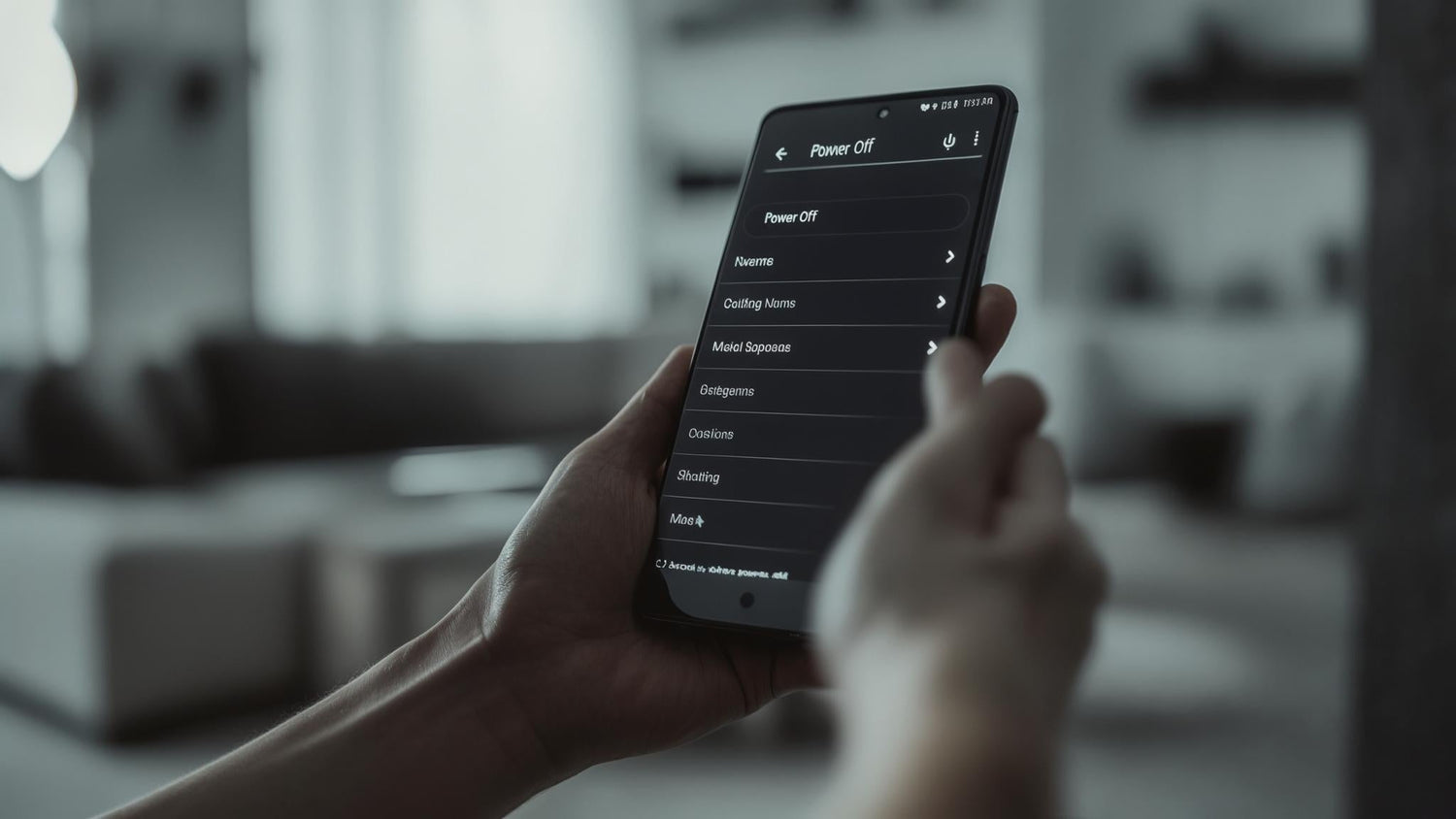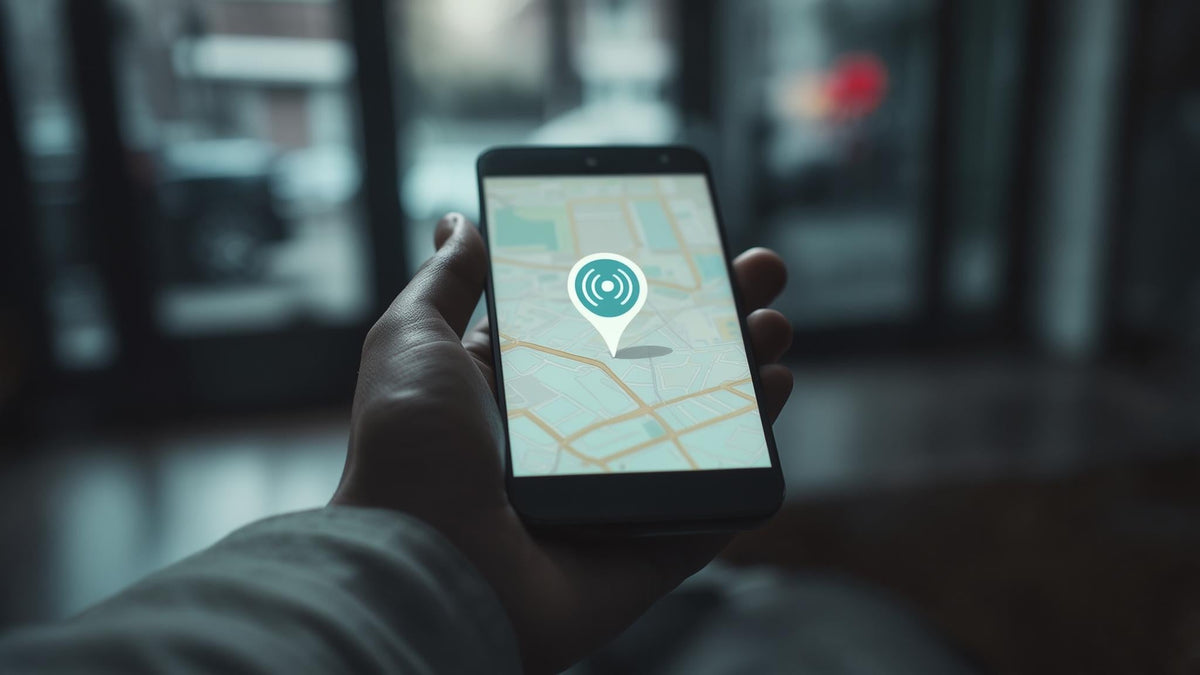Look, turning off your phone should be simple, right? Press a button, phone goes off. But if you've picked up a newer Android lately, you've probably discovered that manufacturers love messing with the basics. The Android operating system includes built-in features like Data Saver mode that are available on devices running Android 7.0 or later, yet many users remain unaware of essential power management techniques that could extend their device's lifespan and improve performance.
Let me walk you through what actually works when your phone decides to be difficult.
Table of Contents
The Quick Version (For People in a Hurry)
The Standard Methods That Used to Be Standard
When Manufacturers Get Creative (AKA Annoying)
What to Do When Nothing Works
Smart Power Management That Actually Matters
Battery Strategies That Actually Work
Final Reality Check
The Quick Version (For People in a Hurry)
Most phones: Hold the power button until a menu pops up, then tap "Power off."
Newer phones (because they had to be different): Hold power button + volume up for a few seconds.
Phone completely frozen? Hold the power button for 15-20 seconds to force it off.
Samsung and Google changed their power button defaults - you'll need to adjust settings or use alternative methods. Voice commands work through Google Assistant, but require setup and confirmation. Regular shutdowns (not just restarts) actually improve battery health and clear system clutter. Emergency situations require special consideration since powering off disables GPS tracking.
That covers 90% of situations, but stick around if you want the full story.
The Standard Methods That Used to Be Standard
Understanding the fundamentals of Android power management is crucial, especially when dealing with frozen or unresponsive devices that require more aggressive shutdown methods.
I'll walk you through the most common methods that work across virtually all Android devices. These should handle most situations you'll encounter, from basic shutdowns to dealing with unresponsive hardware.
The Classic Power Button
This used to work on every phone. Hold the power button for 2-3 seconds, get a nice menu with "Power off," and you're done. Simple. It's straightforward and works on most devices manufactured before 2020.
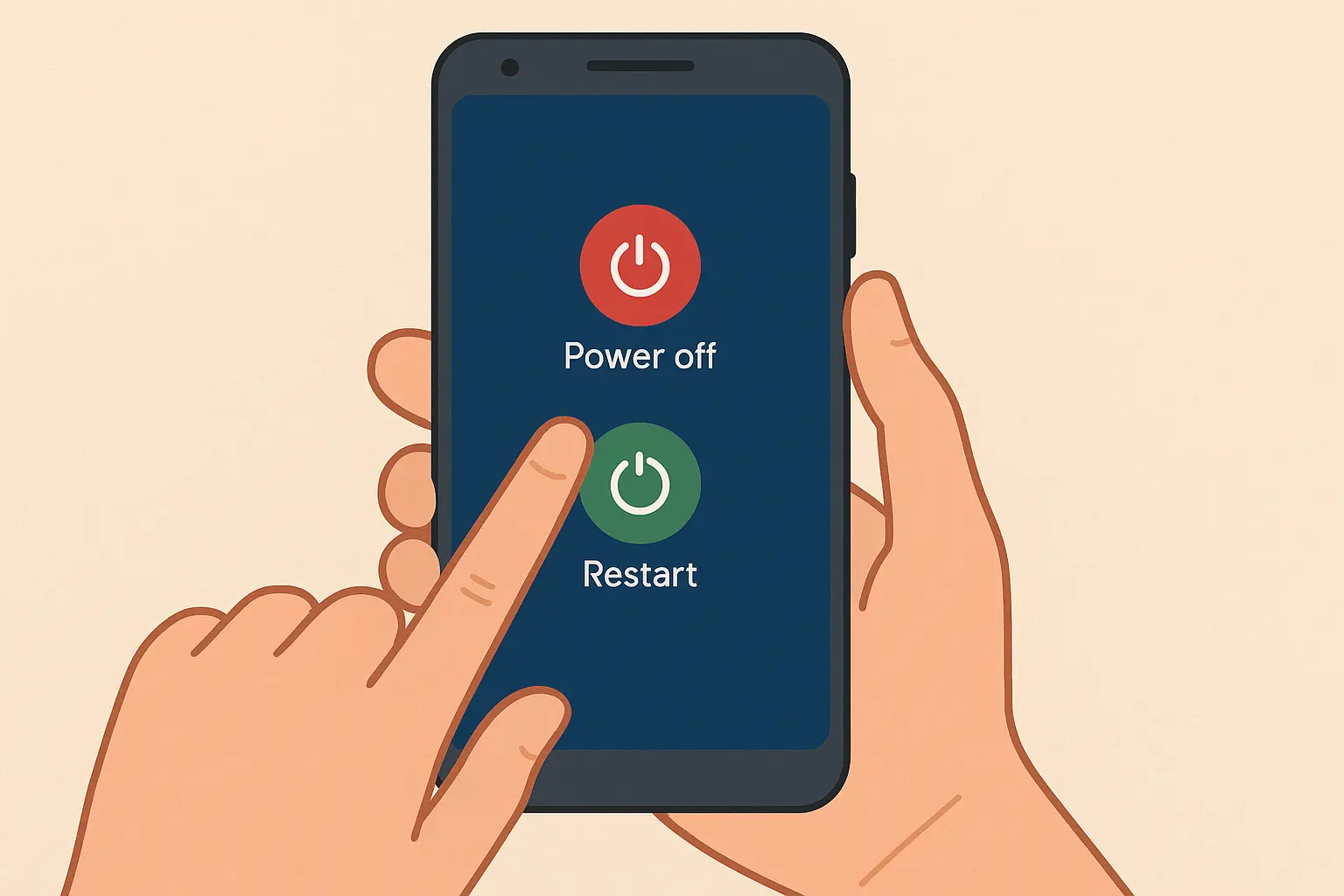
But here's the thing - phone makers decided this was too easy. Now half of them have reassigned that button to launch their digital assistant instead. Thanks for nothing, Samsung and Google.
The New Reality: Button Combos Nobody Asked For
On most newer Android phones, you need to hold the power button AND volume up button together for about 3 seconds. It feels clunky, but it works. This change happened because manufacturers reassigned the power button to Google Assistant, which honestly annoys me sometimes.
For instance, on a Galaxy S24, if you press and hold just the power button, Bixby or Google Assistant activates instead of showing the power menu. You'll need to hold Power + Volume Up for 3 seconds to access shutdown options.
Why the change? Because apparently we all desperately needed faster access to Bixby and Google Assistant. (Spoiler: we didn't.)
When Your Phone Goes Full Zombie Mode
Sometimes your phone just... stops. Screen frozen, nothing responds, it's basically a very expensive paperweight. When your phone completely freezes and won't respond to anything, you need the nuclear option.
Hold that power button down for 15-20 seconds. I know it feels like forever, but don't give up. This forces a complete shutdown and bypasses all normal processes - think of it like yanking the power cord out of a computer. Wait at least 30 seconds before powering back on to prevent potential system conflicts.
Software Solutions When Hardware Fails
For users dealing with hardware button failures, exploring alternative methods can provide backup solutions for essential phone functions.
Sometimes your power button stops working, or you just prefer using the touchscreen. These software-based alternatives don't rely on physical hardware, though they're slightly more involved.
According to recent findings from BGR, many Android phones, including Google Pixel and Samsung devices, now offer convenient software-level methods to access the power menu by simply opening the Quick Settings panel and tapping the power icon.
Quick Settings: Swipe down twice from the top of your screen. Some phones have a power icon here - if you're lucky. If that's not there, tap the gear icon to jump into Settings where power options are usually hiding somewhere in the system menus.
Phone Brand |
Quick Settings Power Icon Location |
Alternative Access Method |
|---|---|---|
Samsung Galaxy |
Top-right corner of Quick Settings |
Settings > Device care > Advanced |
Google Pixel |
Bottom of Quick Settings panel |
Settings > System > Reset options |
OnePlus |
Not available in Quick Settings |
Settings > System > Reset options |
Motorola |
Not available in Quick Settings |
Accessibility Menu Shortcut |
Xiaomi/MIUI |
Bottom-left of Quick Settings |
Settings > Additional settings |
Settings Menu Deep Dive: Navigate to Settings > System > Advanced > Reset options on most phones. Some manufacturers put power controls here, though it varies wildly between brands. Samsung hides theirs in different places, while OnePlus keeps them more accessible.
Voice Commands for the Hands-Free Crowd
Google Assistant can power off your phone through voice commands, but this feature requires initial setup and isn't as straightforward as you might expect. It's convenient when your hands are full, but comes with limitations.
Say "Hey Google, turn off my phone" or "Hey Google, power off my device." The assistant will usually ask for confirmation before actually shutting down, which is both annoying and reassuring depending on your perspective.
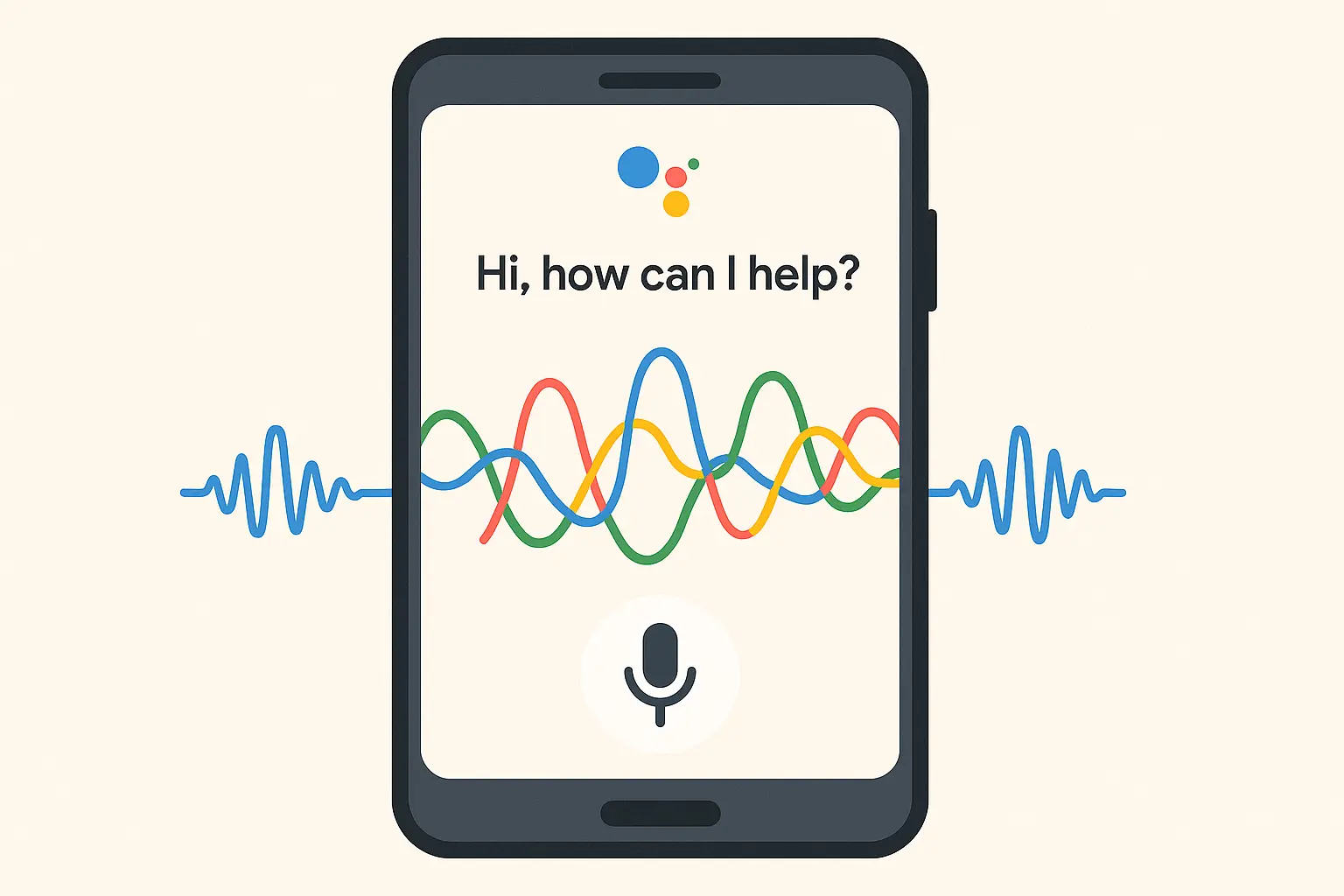
When Manufacturers Get Creative (AKA Annoying)
Different manufacturers approach phone design differently, much like how motorcycle accessories vary by brand, requiring users to adapt to each manufacturer's unique implementation.
Different Android manufacturers love putting their own spin on basic functions, and powering off your phone is no exception. I've dealt with Samsung's Bixby complications, Google's Assistant takeover, and various custom interfaces that each do things slightly differently.
Samsung's Bixby Problem That Nobody Wanted
Samsung really wants you to use Bixby. So much so that they hijacked the power button to launch it instead of, you know, controlling power. They've prioritized their own features over basic usability, but there are workarounds once you know where to look.
Dealing with Bixby Button Legacy: Older Galaxy models with dedicated Bixby buttons can be customized to bring up the power menu instead. I always change this setting immediately because accidentally triggering Bixby is incredibly frustrating during normal phone use.
The Fix That Actually Works: Go to Settings > Advanced features > Side key to change what happens when you press and hold the power button. This lets you restore the traditional power menu access that Samsung inexplicably removed from newer devices.
On my Galaxy S23, I changed the Side Key settings so a double-press opens the power menu instead of launching the camera app. This gives me quick access to shutdown options without dealing with Bixby or Assistant interference.
Google's Assistant Obsession
Google decided to make their Assistant the default power button function on Pixel devices, which seemed like a good idea until you actually need to turn off your phone quickly. At least Assistant is more useful than Bixby, but it's still annoying when you just want to turn off your phone.
Reclaiming Your Power Button: Use the volume up + power button combination when Google Assistant has hijacked your power button. Alternatively, disable Google Assistant's power button activation by going to Settings > System > Gestures and turning off "Hold for Assistant."
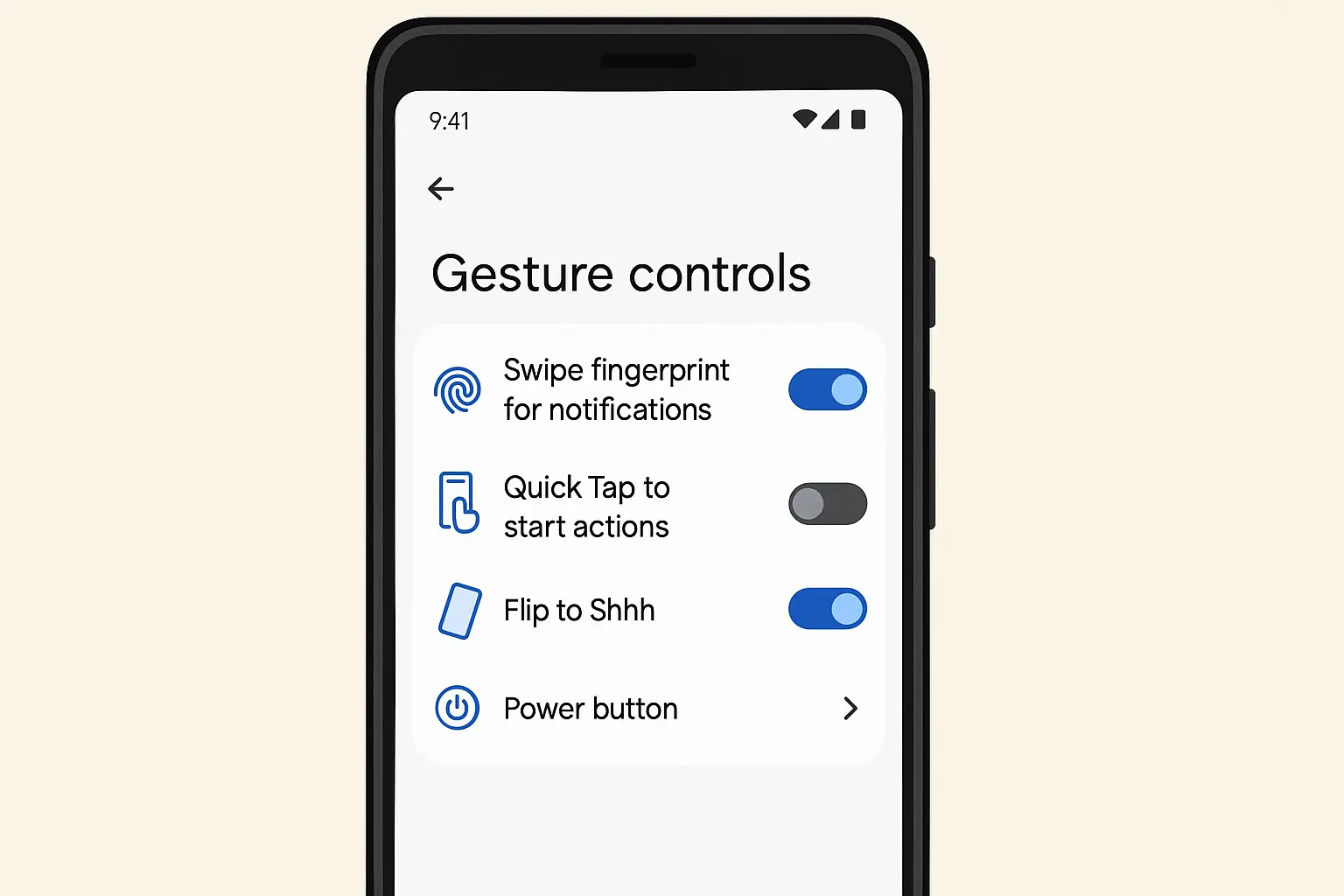
Other Manufacturers' Creative Interpretations
OnePlus, Xiaomi, Huawei, and other brands each implement their own power management interfaces. While frustrating for consistency, understanding these variations helps when switching between different Android devices.
OnePlus OxygenOS Peculiarities: OnePlus devices maintain fairly standard power-off procedures, but their three-finger screenshot gesture sometimes interferes with power button functionality. You can usually find backup power options under Settings > System > Reset options.
Unfortunately, as noted by BGR, most Motorola and newer OnePlus phones, such as the OnePlus 13 and OnePlus 13R, don't include the power icon in their Quick Settings panels, requiring users to rely on alternative methods like the Accessibility Menu Shortcut.
MIUI and EMUI Custom Locations: Xiaomi's MIUI and Huawei's EMUI relocate power options within their heavily customized settings menus. I typically find them under System settings or Device care sections, though the exact location varies by software version.
What to Do When Nothing Works
When standard methods fail, you might need more comprehensive troubleshooting approaches, similar to the systematic methods used in phone settings optimization.
Look, sometimes your phone just decides to have a complete meltdown. Screen's frozen, buttons aren't responding, and you're wondering if you accidentally bought a very expensive brick. Here are the solutions that actually work when standard methods fail.
When Your Phone Goes Full Zombie Mode
When your phone locks up entirely and won't respond to any touch or button input, you need more aggressive solutions. These methods bypass normal software processes and force hardware-level shutdowns.
The Nuclear Option: Hold that power button down for 15-20 seconds. I know it feels like forever, but don't give up. This bypasses everything and just cuts power entirely, preventing potential system conflicts that can occur when you immediately restart after a forced shutdown.
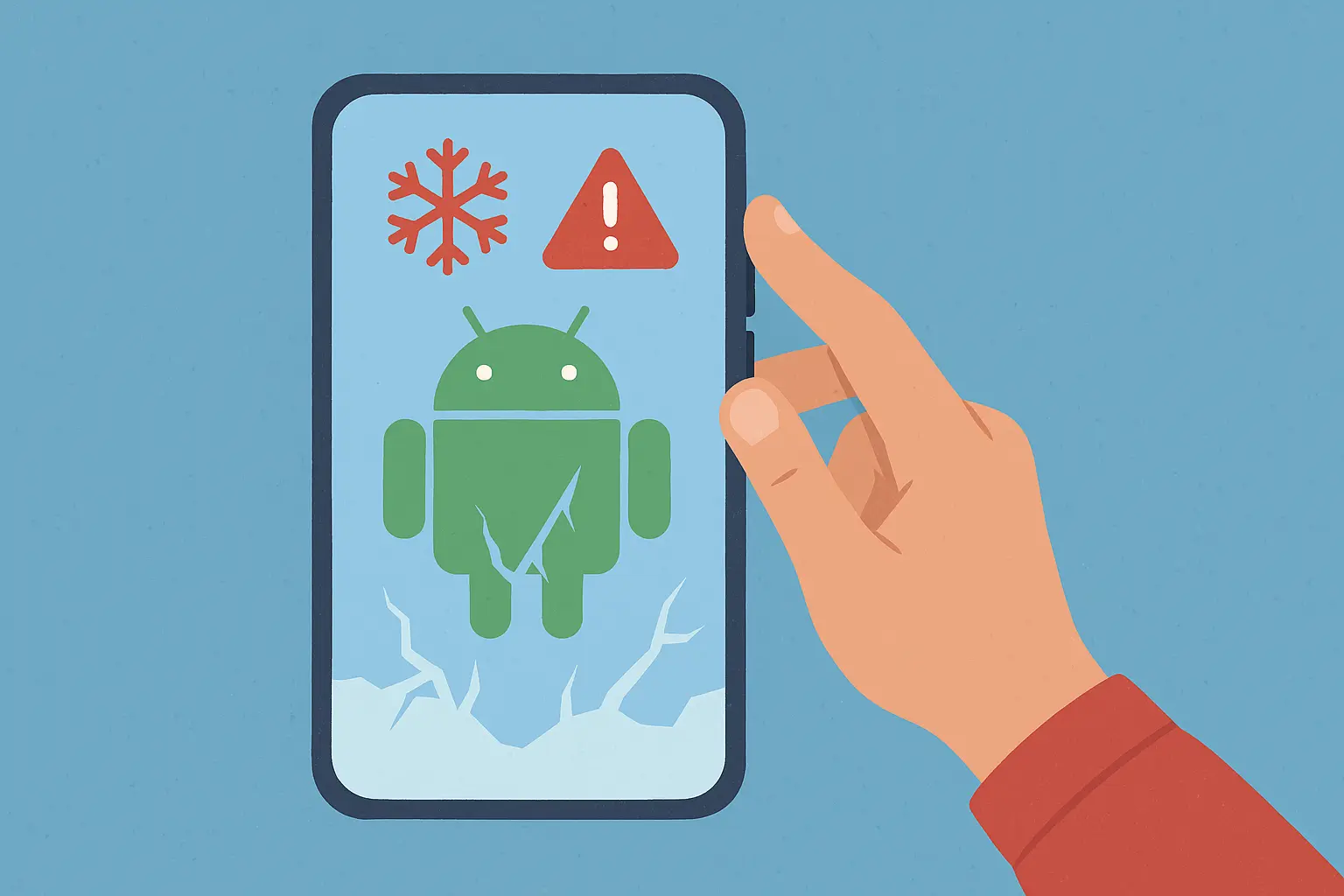
If That Doesn't Work: For completely frozen devices that won't respond to forced shutdowns, let the battery die. I hate recommending this because it's terrible for battery health long-term, but sometimes it's your only option. Put the phone somewhere safe and wait it out.
When Apps Won't Let Go
Some apps are clingy. Really clingy. They'll prevent your phone from shutting down because they think they're more important than your sleep schedule. Certain applications can prevent normal shutdown procedures from completing successfully, particularly security apps, system monitors, or poorly coded third-party software.
Safe Mode Trick: Boot into Safe Mode by holding the power button, then when you see "Power off," press and hold that option until "Safe mode" appears. This disables third-party apps that might be preventing shutdown, allowing you to power off normally.
Force Stop the Troublemaker: Go to Settings > Apps > [App name] > Force stop before attempting to power off. I do this particularly for apps that maintain persistent background processes or have been acting buggy recently. Then immediately try to power off before the app starts acting up again.
When my banking app started preventing shutdowns due to a security feature glitch, I had to force-stop it through Settings > Apps > [Bank App] > Force stop, then immediately power off the device before the app could restart its background processes.
Smart Power Management That Actually Matters
Strategic power management extends beyond basic shutdown procedures, incorporating principles found in battery optimization techniques that can significantly improve device performance.
Here's the thing about phone batteries - they're kind of like people. They need proper rest to function well long-term. Beyond just knowing how to turn off your phone, understanding when and why to use different power management techniques can significantly improve your device's performance and longevity.
Scheduled Power Operations for Real Life
Setting up automatic power management saves time and ensures consistent device maintenance. Many people don't realize their Android phone can handle power scheduling natively, without needing third-party apps.
Built-in Scheduling You Probably Missed: Many Android devices include native scheduling options in Settings > System > Scheduled power on/off. I set mine to automatically shut down at 11 PM and restart at 6 AM on weekdays, which helps with battery conservation and system maintenance.
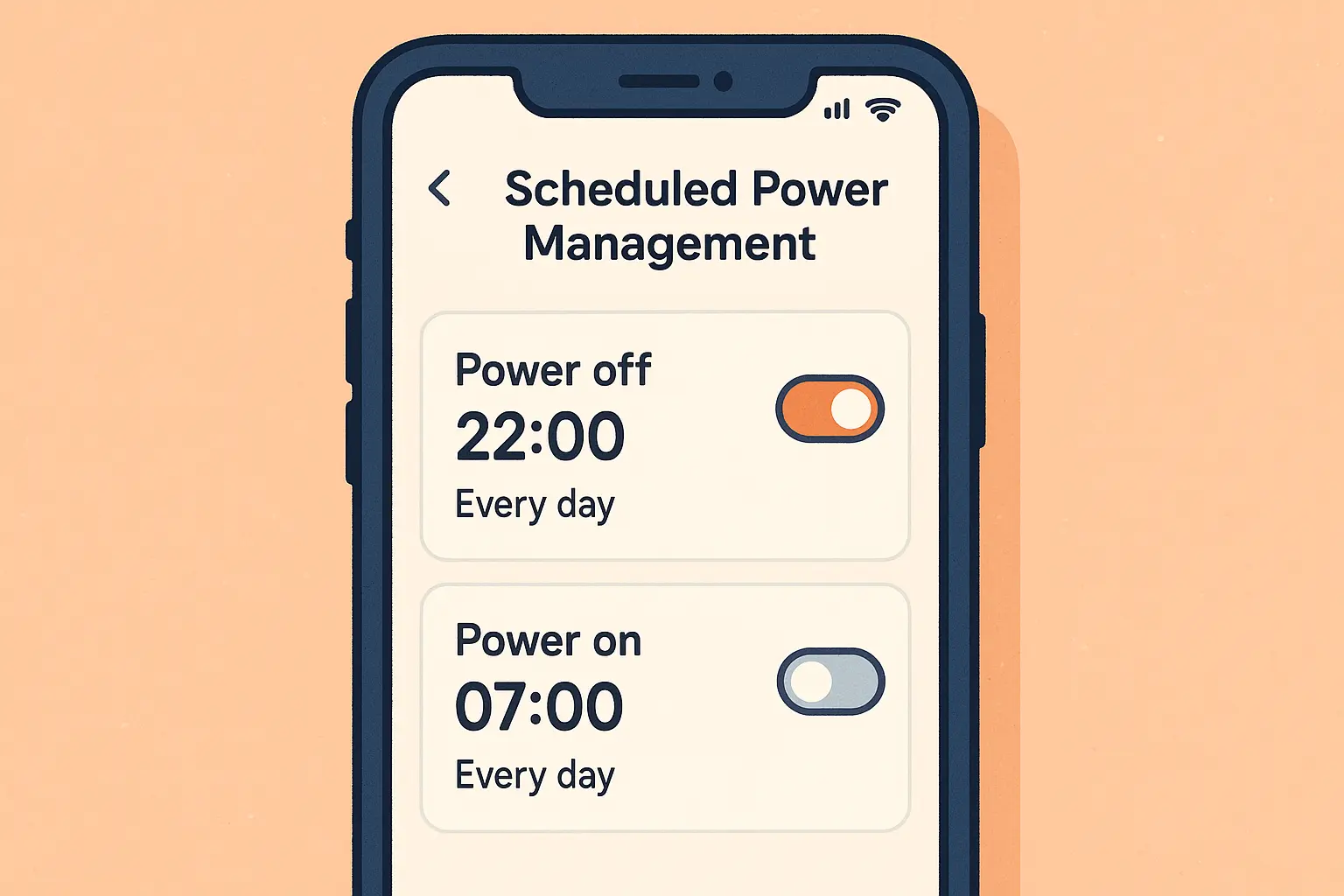
Third-Party Automation for Power Users: Apps like Tasker or MacroDroid create complex power management rules that go beyond basic scheduling. I've set up location-based shutdowns, battery-level triggers, and time-based automation sequences that adapt to my daily routine.
Emergency Situations Need Special Thinking
Before you power off in an emergency situation, remember: no phone means no GPS tracking. If you're lost or in danger, that location data could save your life. Powering off your device during critical situations requires careful consideration of the consequences.
Emergency Scenario Power Off Recommendation Alternative Solution Lost in wilderness Keep phone on, enable airplane mode Use battery saver mode Domestic violence situation Consider safety vs. tracking needs Remove battery if possible Natural disaster Keep phone on for emergency alerts Use ultra power saving mode Medical emergency Keep phone on for location services Disable non-essential features Theft/robbery in progress Power off to prevent tracking Enable lockdown mode instead
Battery Strategies That Actually Work
Understanding battery health goes beyond basic charging habits, incorporating advanced strategies similar to those used in wireless charging optimization for maximum device longevity.
Here's what most people don't realize: regularly turning off your phone actually helps it run better. Not just restarting - full shutdowns. Understanding when and why to power off your Android device impacts battery life and system performance more than most people realize.
The Overnight Shutdown Trick Nobody Talks About
I started turning my phone off overnight a few times a week, and honestly? It runs so much better. The battery lasts longer during the day, apps don't crash as much, and everything just feels snappier.
Your phone doesn't need to be "always on" like some kind of digital vampire. Regular overnight power-offs extend battery lifespan by preventing unnecessary background processes and reducing charge cycles. This is especially beneficial for devices with older batteries that are already showing signs of degradation.
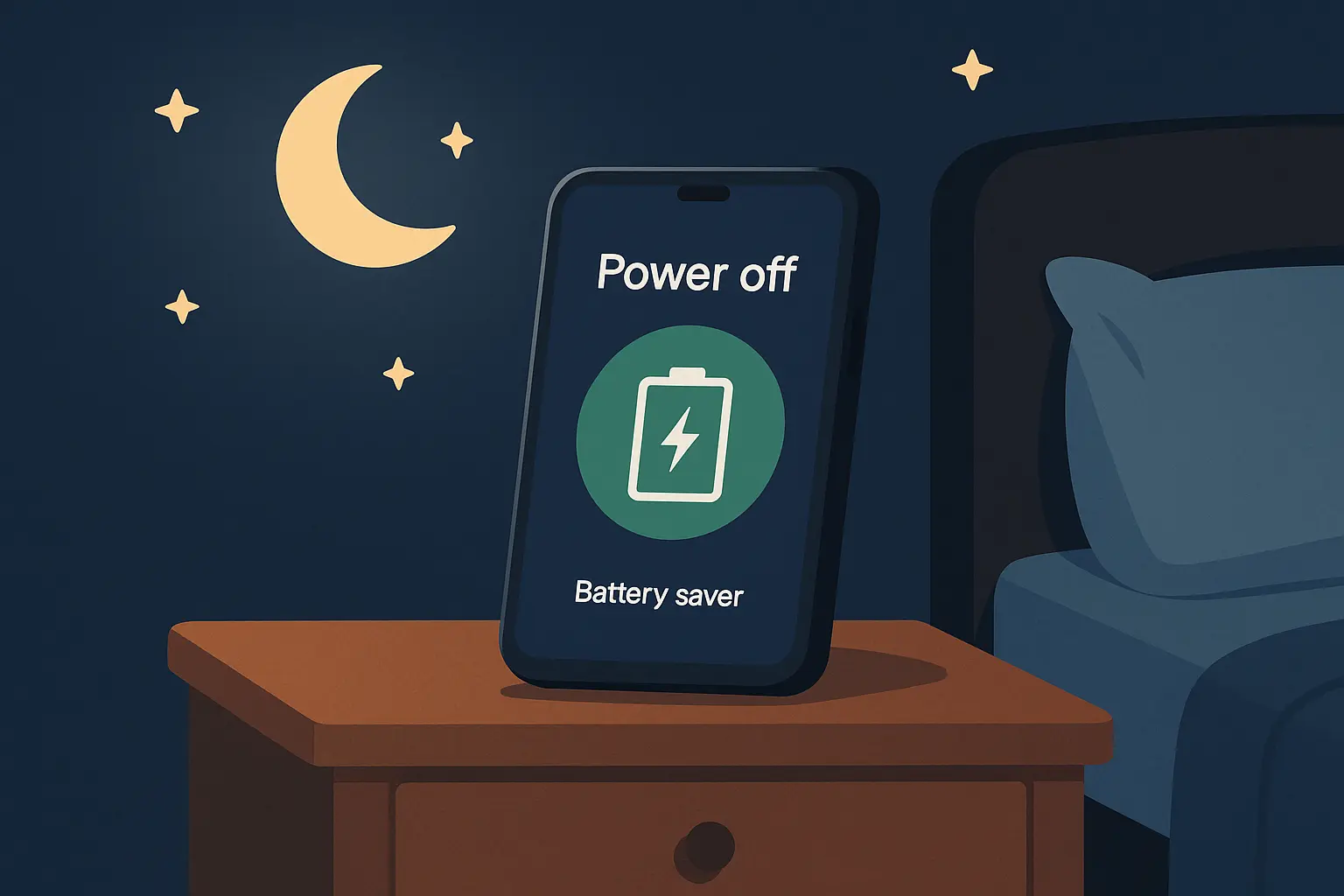
Travel and Storage Tips That Matter
Going on vacation without your phone? (Lucky you.) Power it off and leave it with about 60% battery. Not full, not empty - somewhere in the middle. For extended periods of non-use, this maintains optimal battery health and prevents deep discharge damage that can permanently reduce battery capacity.
Complete Shutdown vs. Restart: The Real Difference
Understanding the difference between different shutdown methods helps you choose the most appropriate option for different situations. Each serves distinct purposes in device maintenance and troubleshooting.
Restart: Good for applying updates or clearing minor glitches. Soft restarts maintain certain system states while refreshing active processes, making them better for applying updates or clearing temporary performance issues. Everything boots back up pretty much where you left it.
Complete Shutdown: Better for deep cleaning your phone's system. Full power-off stops all processes entirely, providing maximum battery conservation and allowing hardware components to completely reset. Everything stops, memory clears completely, and you get a true fresh start.
Think of restart as a quick nap and shutdown as a full night's sleep.
Weekly Shutdown Routine: Pick one day a week to completely power off your phone for a few hours. Maybe Sunday afternoon when you're relaxing anyway. Weekly or bi-weekly power-offs clear temporary files, reset RAM allocation, and resolve minor software glitches that accumulate during continuous operation.
Power Management Checklist:
Check if your phone has scheduled power options enabled
Set up weekly complete shutdowns for system maintenance
Configure battery optimization settings for essential apps
Test alternative shutdown methods before emergencies
Review power button customization in your phone's settings
Enable accessibility shortcuts as backup power options
Document which method works best for your specific device model
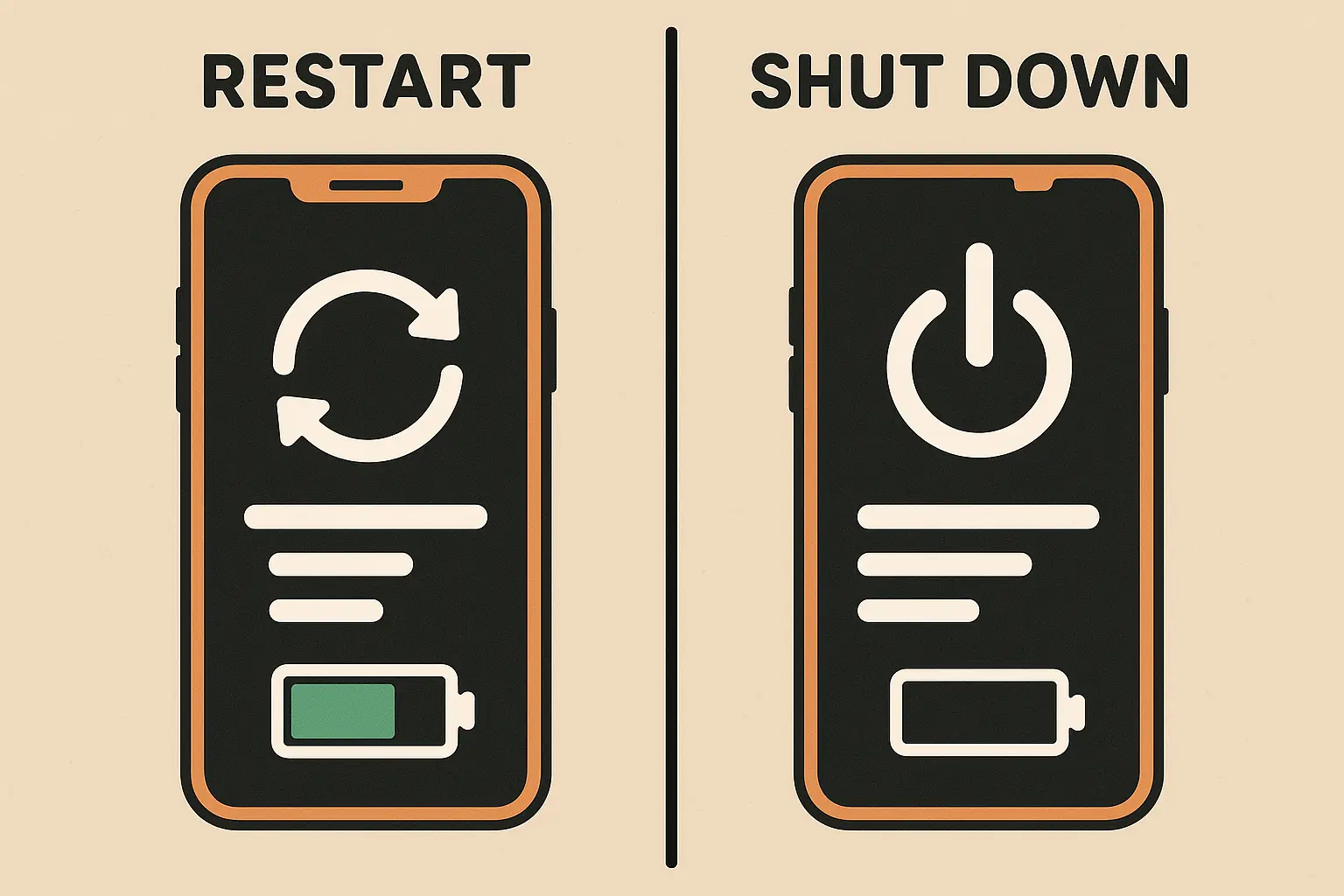
How Rokform Protects Your Power Controls
While mastering various shutdown methods is essential, protecting your device While mastering various shutdown methods is essential, protecting your device's physical buttons and hardware ensures these techniques remain available when you need them most. Rokform's rugged phone cases provide military-grade protection that shields your power button and other critical components from damage.
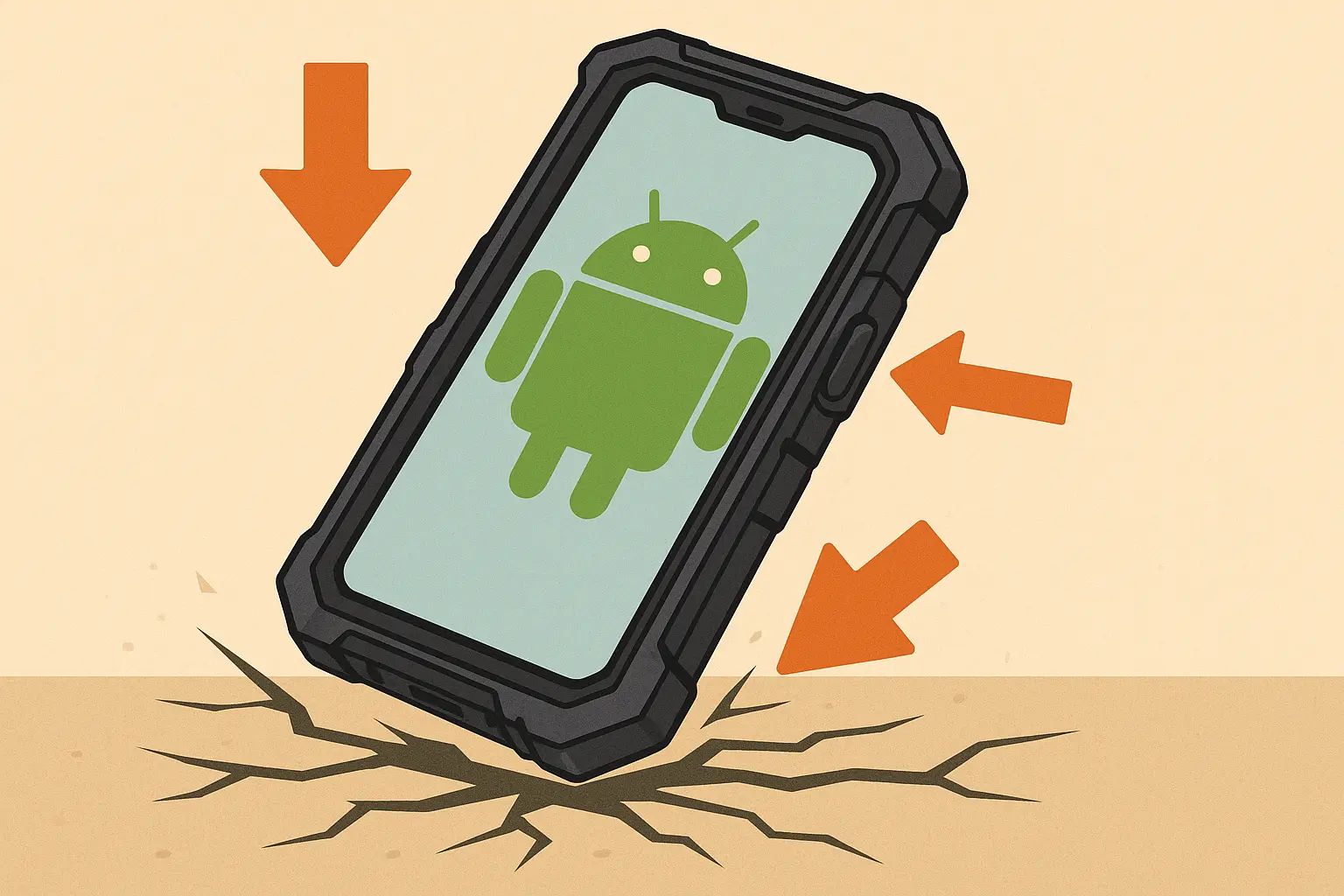
The RokLock™ mounting system and powerful magnets ensure your phone stays secure during activities that could damage delicate hardware buttons. Whether you're a first responder needing reliable access to power controls during critical situations, or someone whose phone faces daily wear and tear, 6-foot drop protection and 360-degree coverage help ensure your power button continues working reliably.
Ready to protect your Android's essential functions? Explore Rokform's protective cases and keep your power controls working when you need them most.
Final Reality Check
The fact that we need a guide this long to turn off a phone is honestly ridiculous. But manufacturers gonna manufacture, so here we are.
Mastering the art of turning off your Android phone goes way beyond just holding a button - it's about understanding your specific device, knowing what to do when things go wrong, and using power management strategically to extend your phone's life.
I've found that the biggest frustration comes from manufacturers changing established patterns without clear communication to users. Samsung's Bixby integration, Google's Assistant takeover, and various custom interfaces all create unnecessary confusion around something that should be simple.
The most important thing? Don't let your phone run 24/7 for months without a proper shutdown. It's not a server in a data center - it's a pocket computer that needs occasional maintenance. The key is having multiple methods in your toolkit. When the standard power button hold doesn't work, try the volume combination. When hardware buttons fail entirely, know your software alternatives. And when everything freezes up, don't panic - forced shutdowns and safe mode techniques will get you back on track.
Master a few different shutdown methods, give your phone regular breaks, and remember that sometimes the old-fashioned "turn it off and on again" really does fix everything. Most importantly, don't underestimate the value of regular shutdowns for battery health and system performance. Your Android phone isn't meant to run continuously for months without a break, and strategic power management can significantly extend its useful life.
Your Android phone is a tool, not a life support system. Treat it well, but don't be afraid to power it down when you need to.







